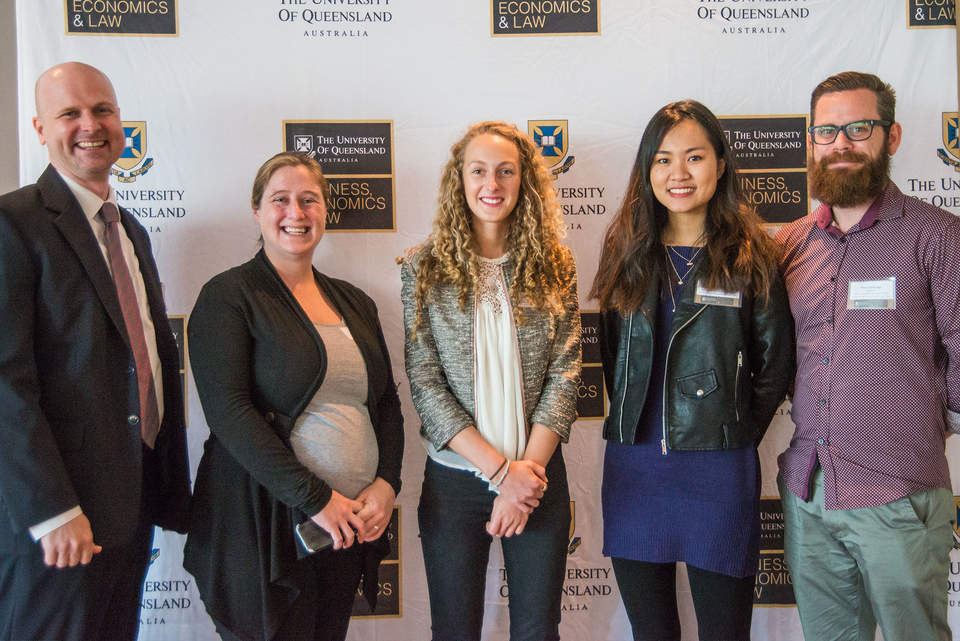
This article originally appeared on the BEL Website, on 26 July 2017.
A team of students from The University of Queensland Faculty of Business, Economics and Law (BEL) have devised a winning formula to help the Royal Flying Doctor Service (RFDS) roll out telehealth programs across rural and remote Queensland.
Their project came to fruition through the Community Engagement Program (CEP), a BEL Faculty initiative designed to give students hands-on experience in real industry projects for the not-for-profit sector.
Team members Marielle Allan, Phoebe Bardsley, Sophie Galbraith, Lu Lin, Sacha Robinson and Shane Sturtridge took home the winning team prize in the bi-annual CEP awards. Ms Allan was also named the individual CEP award winner for her outstanding work as team leader.
Bachelor of Economics student Ms Bardsley said the group faced the daunting task of drafting a plan to introduce telehealth video conferencing to remote Queensland communities – many of them hundreds of kilometres away from GPs and specialist clinics.
“The original project brief was very broad and it took us several weeks to really narrow it down,” she said.
“In the end, we came up with a flexible flowchart that allows the RFDS to match unmet community healthcare needs with appropriate telehealth technologies.
“This was through a needs assessment and an infrastructure assessment – so we’ve outlined the key questions that the RFDS needs to ask to find solutions to the issues these communities face.”
Using the outback Queensland town of Yowah as a case study, the team consulted UQ researchers and stakeholders from the RFDS and Queensland Health to develop their flowchart model.



